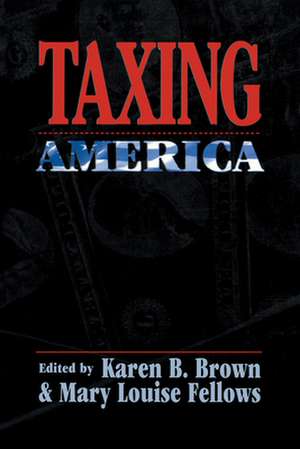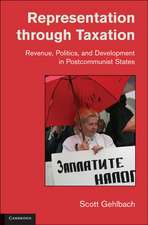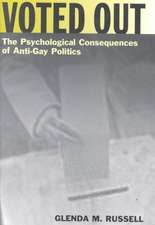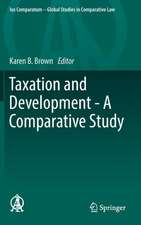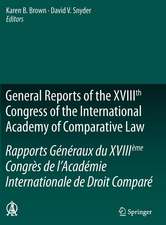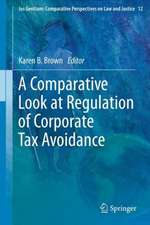Taxing America: Critical America
Autor Karen B. Brown, Mary Louise Fellowsen Limba Engleză Paperback – 31 dec 1996
Din seria Critical America
-
 Preț: 123.12 lei
Preț: 123.12 lei -
 Preț: 216.04 lei
Preț: 216.04 lei -
 Preț: 256.86 lei
Preț: 256.86 lei -
 Preț: 250.89 lei
Preț: 250.89 lei - 23%
 Preț: 584.77 lei
Preț: 584.77 lei -
 Preț: 223.58 lei
Preț: 223.58 lei -
 Preț: 247.40 lei
Preț: 247.40 lei - 23%
 Preț: 525.71 lei
Preț: 525.71 lei -
 Preț: 250.89 lei
Preț: 250.89 lei -
 Preț: 239.73 lei
Preț: 239.73 lei -
 Preț: 245.67 lei
Preț: 245.67 lei -
 Preț: 262.04 lei
Preț: 262.04 lei -
 Preț: 242.01 lei
Preț: 242.01 lei -
 Preț: 242.22 lei
Preț: 242.22 lei -
 Preț: 248.17 lei
Preț: 248.17 lei -
 Preț: 251.27 lei
Preț: 251.27 lei -
 Preț: 241.08 lei
Preț: 241.08 lei -
 Preț: 205.32 lei
Preț: 205.32 lei -
 Preț: 247.40 lei
Preț: 247.40 lei -
 Preț: 248.59 lei
Preț: 248.59 lei -
 Preț: 224.33 lei
Preț: 224.33 lei -
 Preț: 225.71 lei
Preț: 225.71 lei -
 Preț: 246.86 lei
Preț: 246.86 lei -
 Preț: 502.77 lei
Preț: 502.77 lei -
 Preț: 210.16 lei
Preț: 210.16 lei -
 Preț: 242.78 lei
Preț: 242.78 lei -
 Preț: 227.62 lei
Preț: 227.62 lei -
 Preț: 241.85 lei
Preț: 241.85 lei -
 Preț: 227.44 lei
Preț: 227.44 lei -
 Preț: 222.60 lei
Preț: 222.60 lei -
 Preț: 250.67 lei
Preț: 250.67 lei -
 Preț: 236.06 lei
Preț: 236.06 lei -
 Preț: 242.60 lei
Preț: 242.60 lei -
 Preț: 238.96 lei
Preț: 238.96 lei -
 Preț: 226.09 lei
Preț: 226.09 lei -
 Preț: 241.64 lei
Preț: 241.64 lei -
 Preț: 266.07 lei
Preț: 266.07 lei -
 Preț: 206.85 lei
Preț: 206.85 lei -
 Preț: 224.33 lei
Preț: 224.33 lei -
 Preț: 237.22 lei
Preț: 237.22 lei -
 Preț: 242.22 lei
Preț: 242.22 lei -
 Preț: 248.17 lei
Preț: 248.17 lei -
 Preț: 294.42 lei
Preț: 294.42 lei -
 Preț: 209.17 lei
Preț: 209.17 lei - 23%
 Preț: 533.56 lei
Preț: 533.56 lei
Preț: 280.72 lei
Nou
Puncte Express: 421
Preț estimativ în valută:
53.72€ • 56.27$ • 44.52£
53.72€ • 56.27$ • 44.52£
Carte tipărită la comandă
Livrare economică 09-23 aprilie
Preluare comenzi: 021 569.72.76
Specificații
ISBN-13: 9780814726617
ISBN-10: 0814726615
Pagini: 374
Dimensiuni: 152 x 229 x 15 mm
Greutate: 0.5 kg
Ediția:New.
Editura: MI – New York University
Seria Critical America
ISBN-10: 0814726615
Pagini: 374
Dimensiuni: 152 x 229 x 15 mm
Greutate: 0.5 kg
Ediția:New.
Editura: MI – New York University
Seria Critical America
Textul de pe ultima copertă
While the essays cover topics ranging from federal housing policy to environmental clean-up costs to tax treaty policymaking, the book is held together by a philosophy as simple as it is radical. Economic arrangements contribute significantly to the creation of social hierarchies and the perpetuation of discrimination. Given this reality, Brown and Fellows maintain that the goal of the federal tax law should be social justice and the disruption of discriminatory and exploitive practices.
